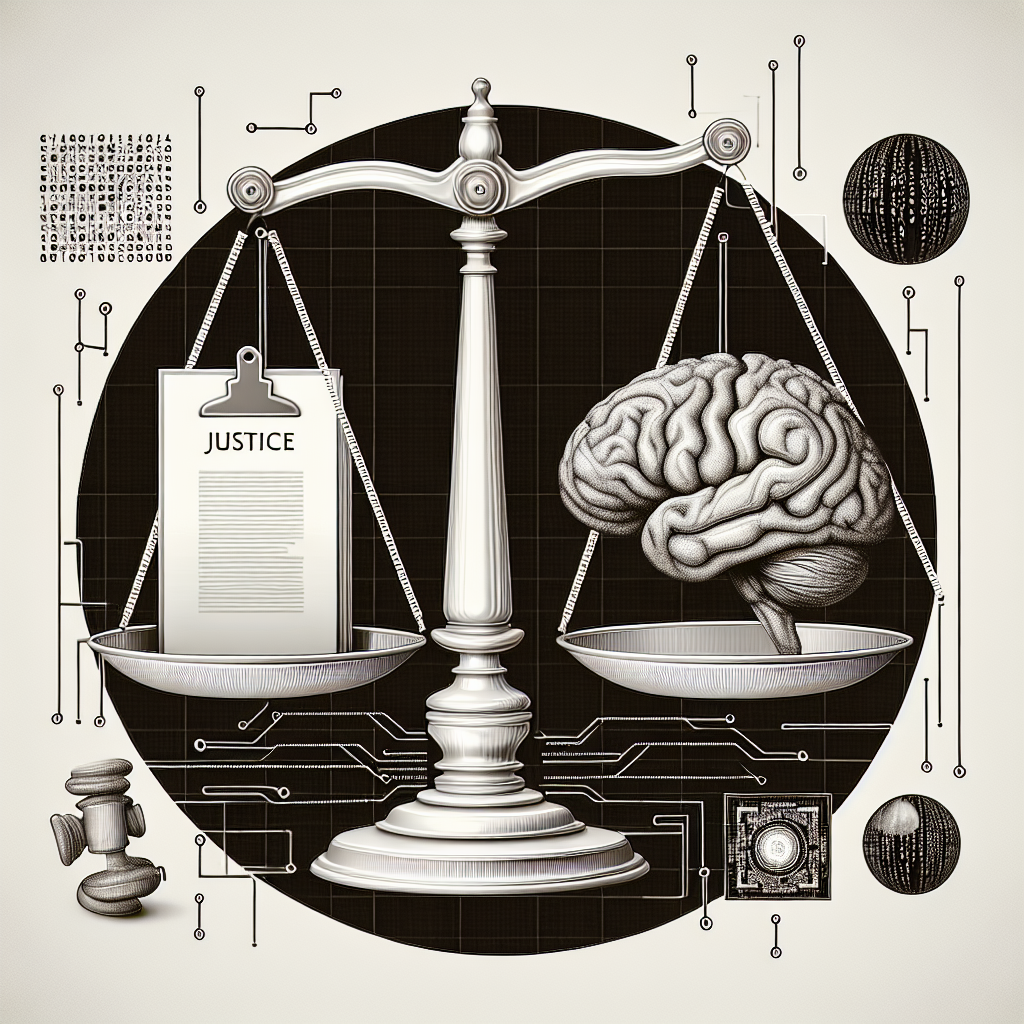Artificial Intelligence (AI) has been revolutionizing various industries, and the legal sector is no exception. One of the key areas where AI is making a significant impact is in legal case prediction and outcome analysis. By leveraging AI technology, law firms, legal professionals, and even individuals involved in legal cases can gain valuable insights and make data-driven decisions.
AI for Legal Case Prediction
Legal case prediction involves using AI algorithms to analyze past cases, statutes, regulations, and other legal documents to predict the outcomes of current or future cases. By analyzing vast amounts of data, AI can identify patterns, trends, and correlations that may not be apparent to human analysts. This can help legal professionals make more informed decisions and develop effective case strategies.
There are several ways in which AI can be leveraged for legal case prediction:
1. Natural Language Processing (NLP): NLP is a branch of AI that focuses on the interaction between computers and humans through natural language. In the legal sector, NLP can be used to analyze and extract information from legal documents, such as court opinions, statutes, and contracts. This can help in identifying relevant precedents, legal arguments, and key issues in a case.
2. Machine Learning: Machine learning algorithms can be trained on large datasets of legal cases to predict the outcomes of new cases. By analyzing factors such as case facts, legal arguments, judges’ decisions, and court precedents, machine learning models can provide insights into the likelihood of success in a particular case.
3. Predictive Analytics: Predictive analytics involves using AI algorithms to forecast future outcomes based on historical data. In the legal context, predictive analytics can be used to predict the likelihood of winning a case, the potential settlement amount, or the time and cost of litigation. This can help legal professionals make informed decisions and manage risks more effectively.
4. Sentiment Analysis: Sentiment analysis is a technique that involves analyzing text data to determine the sentiment or emotion expressed in the text. In the legal sector, sentiment analysis can be used to analyze court opinions, legal briefs, and other documents to understand judges’ attitudes, biases, and preferences. This information can be valuable in predicting the outcomes of cases and tailoring legal arguments accordingly.
Outcome Analysis
In addition to predicting the outcomes of legal cases, AI can also be used for outcome analysis. Outcome analysis involves analyzing the results of past cases to identify key factors that contribute to success or failure. By analyzing the outcomes of similar cases, legal professionals can gain insights into effective case strategies, potential risks, and best practices.
There are several ways in which AI can be leveraged for outcome analysis:
1. Case Outcome Prediction: AI algorithms can be used to predict the outcomes of past cases based on various factors, such as case facts, legal arguments, judges’ decisions, and court precedents. By analyzing the outcomes of similar cases, legal professionals can identify patterns and trends that may influence the outcomes of new cases.
2. Performance Metrics: AI can be used to analyze performance metrics, such as win rates, settlement amounts, and case durations, to evaluate the effectiveness of legal strategies and processes. By identifying key performance indicators and benchmarking against industry standards, legal professionals can optimize their operations and improve their outcomes.
3. Comparative Analysis: AI can be used to conduct comparative analysis of different legal strategies, arguments, and approaches to identify the most effective practices. By analyzing the outcomes of similar cases with different strategies, legal professionals can learn from past experiences and make informed decisions in future cases.
FAQs
Q: How accurate are AI predictions in legal case outcomes?
A: The accuracy of AI predictions in legal case outcomes depends on various factors, such as the quality of data, the complexity of the case, and the performance of the AI algorithms. While AI can provide valuable insights and assist in decision-making, it is important to use AI predictions as a tool to supplement human judgment, rather than rely solely on AI recommendations.
Q: What are the potential risks of using AI for legal case prediction?
A: Some potential risks of using AI for legal case prediction include biases in the training data, lack of interpretability in AI algorithms, and ethical concerns related to privacy and data security. It is important for legal professionals to be aware of these risks and take measures to mitigate them, such as using diverse datasets, transparent AI models, and ethical guidelines.
Q: How can legal professionals integrate AI into their practice for case prediction and outcome analysis?
A: Legal professionals can integrate AI into their practice for case prediction and outcome analysis by partnering with AI vendors, investing in AI tools and technologies, and training their staff on AI applications. By leveraging AI technology, legal professionals can gain a competitive edge, improve their decision-making processes, and deliver better outcomes for their clients.
In conclusion, AI is transforming the legal sector by enabling legal professionals to predict case outcomes and analyze past results more effectively. By leveraging AI technology, law firms and legal professionals can gain valuable insights, make data-driven decisions, and improve their performance. As AI continues to advance, it is essential for legal professionals to embrace AI tools and technologies to stay competitive in the ever-evolving legal landscape.

